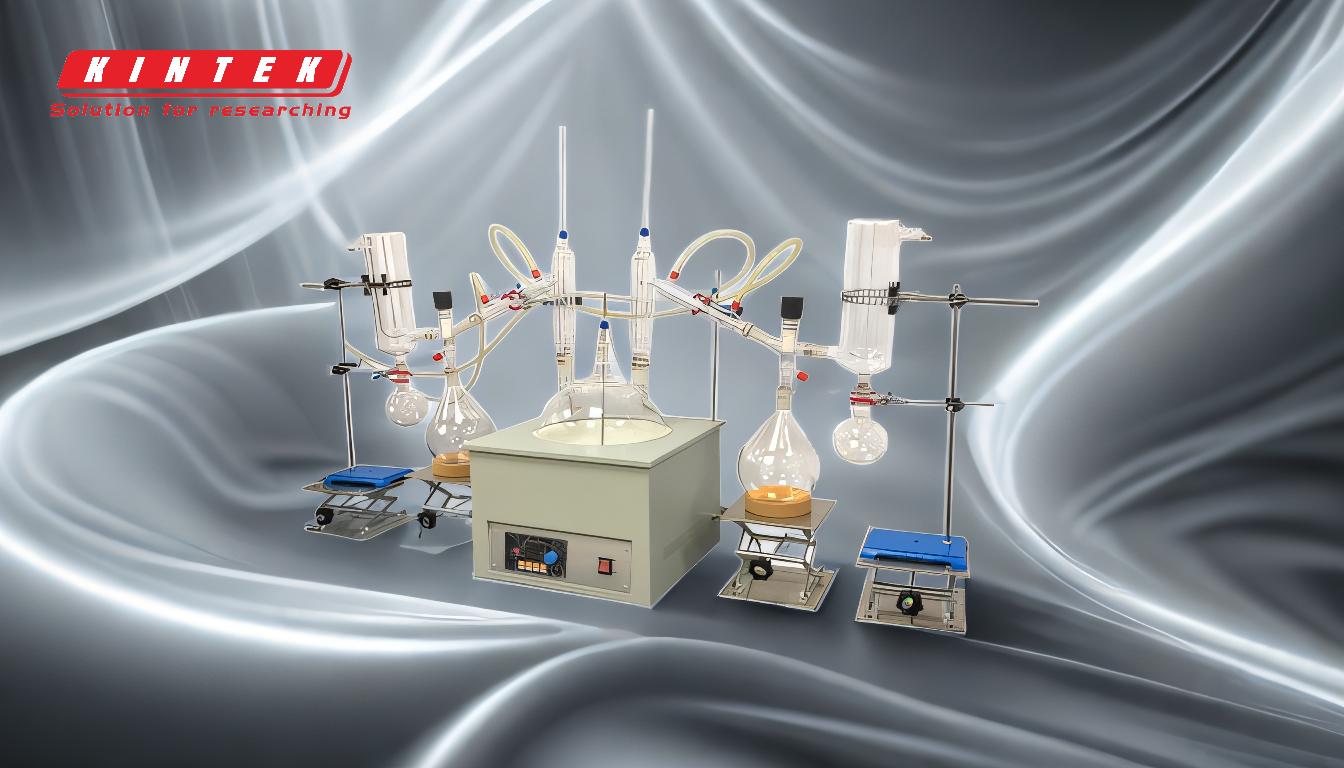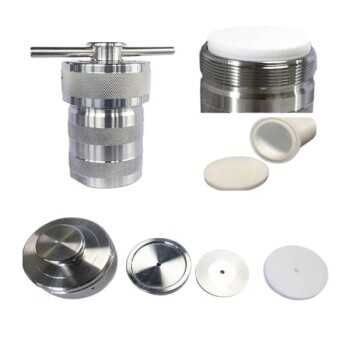Distillation is not a decomposition reaction. Instead, it is a physical separation process that relies on the differences in boiling points of the components in a liquid mixture. During distillation, the mixture is heated, causing the component with the lower boiling point to vaporize first. The vapor is then cooled and condensed back into a liquid, allowing for the separation or purification of the components. This process does not involve any chemical changes or reactions, making it distinct from decomposition reactions, which involve the breakdown of a compound into simpler substances through chemical means.
Key Points Explained:

-
Distillation is a Physical Process, Not a Chemical Reaction
- Distillation involves heating a liquid mixture to separate its components based on their boiling points.
- The process does not alter the chemical composition of the substances involved; it merely separates them physically.
- This distinguishes distillation from decomposition reactions, which involve breaking chemical bonds and forming new substances.
-
Mechanism of Distillation
- The mixture is heated to a temperature where the component with the lower boiling point vaporizes.
- The vapor is then cooled and condensed back into a liquid, which is collected separately.
- This process can be repeated to achieve higher purity or to separate multiple components with different boiling points.
-
Decomposition Reactions vs. Distillation
- Decomposition reactions are chemical processes where a compound breaks down into simpler substances (e.g., water decomposing into hydrogen and oxygen).
- Distillation, on the other hand, is a physical process that does not involve the breaking or forming of chemical bonds.
- The key difference lies in the nature of the changes: chemical reactions involve changes at the molecular level, while distillation relies on physical properties like boiling points.
-
Applications of Distillation
- Distillation is widely used in industries such as petroleum refining, beverage production, and chemical manufacturing to separate and purify liquids.
- It is also used in laboratories for analytical purposes and to obtain pure solvents.
- The process is valued for its ability to achieve high levels of purity without altering the chemical nature of the substances.
-
Why Distillation is Not a Decomposition Reaction
- Decomposition reactions involve the transformation of a compound into different substances, often requiring energy input (e.g., heat or electricity).
- Distillation does not result in the formation of new substances; it simply isolates existing components based on their physical properties.
- The lack of chemical change during distillation is the primary reason it cannot be classified as a decomposition reaction.
In summary, distillation is a physical separation technique that exploits differences in boiling points to isolate or purify components in a mixture. It does not involve chemical reactions or the formation of new substances, making it fundamentally different from decomposition reactions.
Summary Table:
| Aspect | Distillation | Decomposition Reaction |
|---|---|---|
| Nature of Process | Physical separation based on boiling points | Chemical breakdown into simpler substances |
| Chemical Change | No chemical change; components remain the same | Chemical bonds are broken, forming new substances |
| Purpose | Separation or purification of components | Transformation of compounds into simpler substances |
| Applications | Petroleum refining, beverage production, chemical manufacturing, lab analysis | Chemical synthesis, energy production, and waste decomposition |
Need more insights on distillation or other separation techniques? Contact our experts today!













